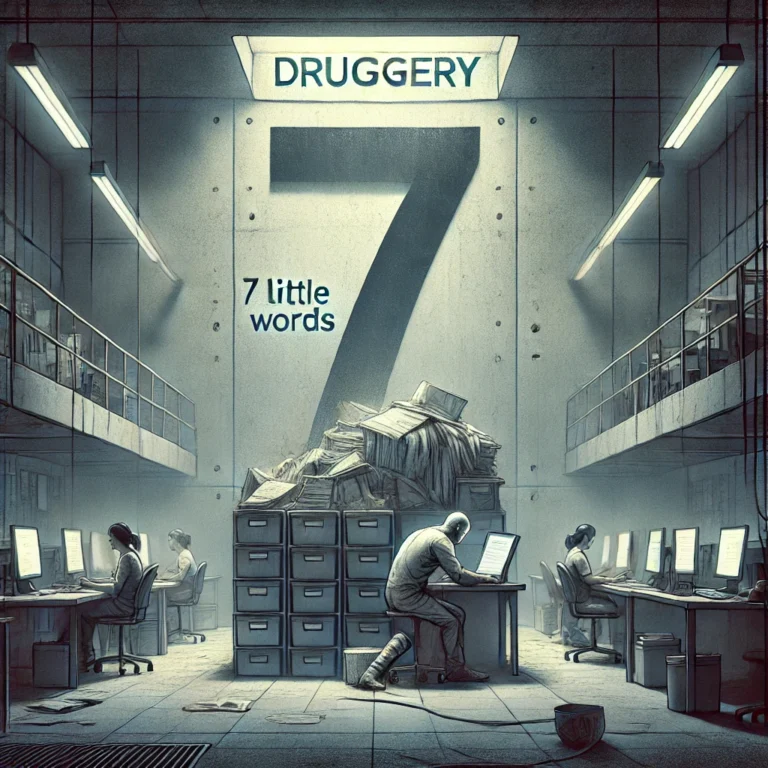Introduction: Mastering Drudgery 7 Little Words
Puzzles have a unique way of capturing our attention, and 7 Little Words is no exception. Among the myriad of challenges it presents, “drudgery” stands out as both an intriguing clue and a head-scratcher for many players. If you find yourself stuck on this term or struggling with similar words, fear not! This guide will equip you with expert tips to solve puzzles faster and elevate your game. Whether you’re a novice or a seasoned pro, mastering “drudgery” in 7 Little Words can unlock new levels of enjoyment in puzzle solving while enhancing your vocabulary along the way. Let’s dive into the world of wordplay together.
What Does Drudgery Mean in 7 Little Words?
Drudgery in 7 Little Words refers to tedious, repetitive tasks that often feel uninspiring. This term captures the essence of monotonous work that can drain your energy and enthusiasm.
In puzzles like 7 Little Words, “drudgery” evokes a sense of challenge. It reminds solvers that sometimes words can be both simple and complex.
Understanding drudgery is key when tackling these puzzles. You’ll encounter synonyms or related terms that fit perfectly within the context of each clue.
By recognizing this concept, you can make educated guesses more effectively and enhance your problem-solving experience. Embracing the nuances of language will help you crack those tricky clues faster than ever before.
How to Solve Drudgery: 7 Little Words with Ease
To tackle Drudgery 7 Little Words effectively, start with a clear mindset. Approach the puzzle like a detective on a mission.
First, scan the clues carefully. Each word is a hint to uncovering hidden meanings. Focus on familiar terms that might resonate with your knowledge base.
Next, think about common letter combinations and prefixes or suffixes that often appear in English words. This can help you fill in gaps quickly.
If you’re stuck, consider writing down potential answers based on the number of letters required. Jotting notes can spark new ideas as you visualize possibilities.
Don’t hesitate to use anagrams as well; rearranging letters may reveal unexpected solutions. It’s all about flexibility and creativity when piecing together these little enigmas.
Remember to take breaks if needed, sometimes stepping away helps clarity return faster than forcing it through frustration.
Strategies for Tackling Difficult Words in 7 Little Words
When faced with tricky words in Drudgery 7 Little Words, it’s crucial to approach the challenge strategically. Start by identifying common prefixes and suffixes that can narrow down your options.
Next, look for letter patterns. Certain combinations often lead to specific answers. For instance, if you see “ing” at the end of a word, think about verbs or adjectives that fit the context.
Don’t forget about context clues provided by other words on the board. The adjacent letters can guide you toward possibilities you hadn’t considered before.
Another technique involves using online tools or apps designed for word puzzles. These resources can offer hints without ruining your gameplay experience.
Engaging friends or family members in solving puzzles adds an element of fun while providing new perspectives on difficult terms. Collaboration often leads to breakthroughs when you’re stuck!
Benefits of Solving Drudgery: 7 Little Words and Similar Puzzles
Solving Drudgery 7 Little Words and similar puzzles offers numerous advantages for your mind. Engaging with these word games stimulates cognitive functions, improving memory and enhancing mental agility.
These puzzles also foster creativity. As you decipher clues and connect letters, your brain learns to think outside the box. This skill translates into everyday problem-solving scenarios beyond just gaming.
Additionally, completing each puzzle brings a sense of accomplishment. Each solved challenge builds confidence and encourages persistence in tackling more difficult tasks.
Moreover, working on these puzzles can be a great stress reliever. The focus required helps distract from daily worries, allowing for relaxation while exercising your brain at the same time.
Enjoying word puzzles provides social interaction opportunities if tackled with friends or family. Sharing strategies and competing fosters connections that deepen relationships through fun collaboration.
Practice Makes Perfect: Excelling in Word Puzzles
To excel in word puzzles like Drudgery 7 Little Words, practice truly is the key. Engaging with these challenges regularly helps sharpen your skills and boosts your vocabulary. The more you play, the quicker you’ll recognize patterns.
Set aside dedicated time for puzzling each day. This routine will not only enhance your ability to solve but also increase your enjoyment of the process. With each puzzle, you’re training your brain to think critically and creatively.
Consider keeping a list of new words or phrases that stump you during gameplay. Revisiting these can expand your knowledge base over time.
Another tactic involves varying difficulty levels in puzzles; this approach keeps things fresh while pushing you out of your comfort zone. Embrace every challenge as an opportunity for growth, and watch how swiftly you improve!
Conclusion: Why Drudgery 7 Little Words is Worth Mastering
Mastering Drudgery 7 Little Words can significantly enhance your word puzzle skills. The thrill of solving each challenge sharpens your mind and brings a sense of accomplishment. Engaging with puzzles like these stimulates cognitive functions, improves vocabulary, and helps develop critical thinking abilities.
Whether you’re tackling struggle or any other themed puzzle, the techniques you’ve learned will serve you well across various word games. The satisfaction derived from deciphering tricky clues fosters confidence that spills over into other areas of life.
Invest time in honing your skills with Drudgery 7 Little Words and reap the rewards. You’ll find yourself not just enjoying the game more but also becoming quicker at solving it. Each session is an opportunity to learn something new while having fun, a perfect blend of both relaxation and mental exercise. Embrace the challenge; it’s a rewarding experience that pays off in numerous ways.
